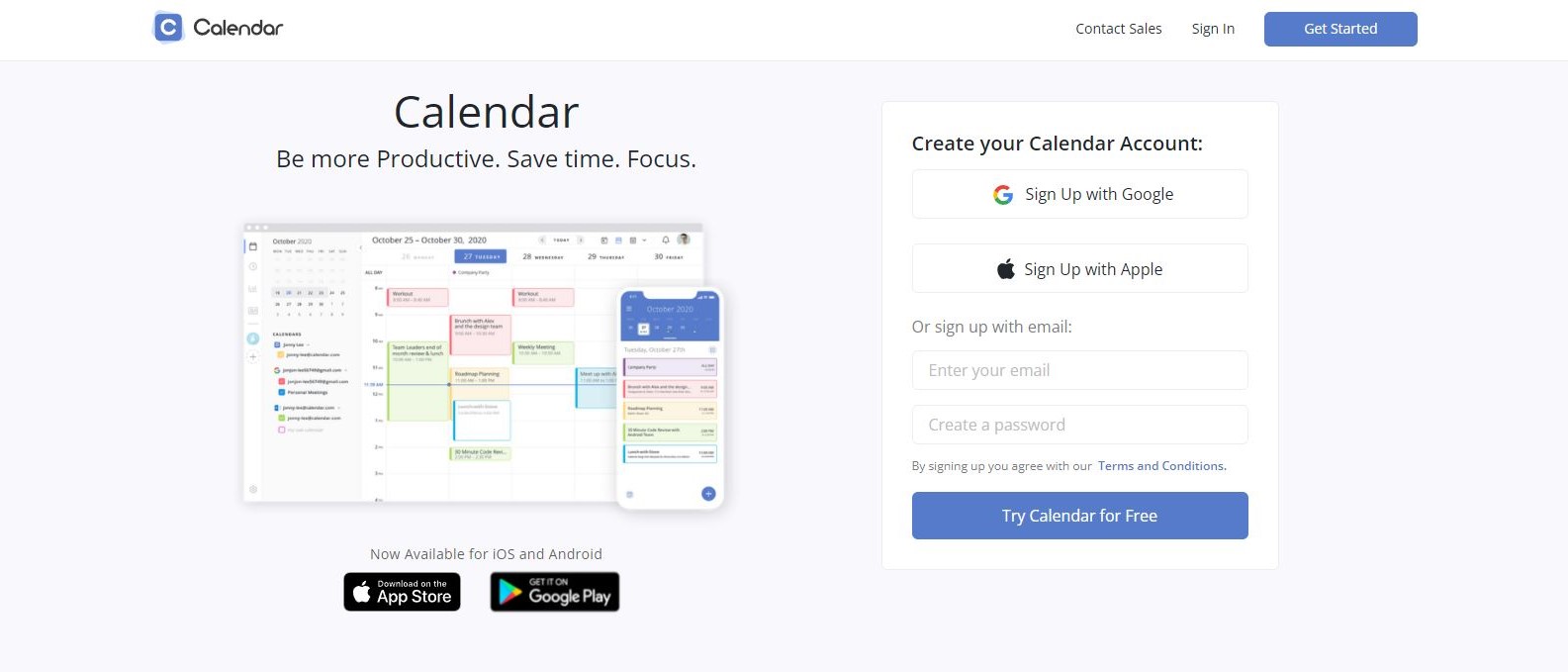TechRadar Verdict
Calendar.com is a long-standing name on the market for calendar apps, and its developers have put a lot of effort into making it a good, well-rounded solution. The interface is very light on the eyes and works smoothly, and the app itself offers lots of different features aimed at users with specific needs. It comes in several pricing tiers – including a free one – that allow users to pick the version that best matches their individual preferences.
Pros
- +
Offers a good number of features
- +
Multiplatform support
- +
Different pricing tiers
Cons
- -
Integration with other services could be better
Why you can trust TechRadar
If you’ve spent some time looking for a good calendar app, you’ve probably noticed that the market tends to be divided into two main categories. On one hand, we have apps aimed at individual users, offering a small but solid set of features that fit most needs. On the other hand, there are also the more advanced, professional calendar apps that offer lots of features and are designed to work best in large organizations.
Calendar.com is a little bit of both, with features that can make it an attractive choice for regular home users, while also offering a competent professional package suitable for organizations of different sizes. The app is offered on multiple platforms as well, making it one of the most versatile offers on the market at the moment. Users can easily check out the free version and then upgrade to one of the premium tiers, and it doesn’t take long to set it up on different devices.
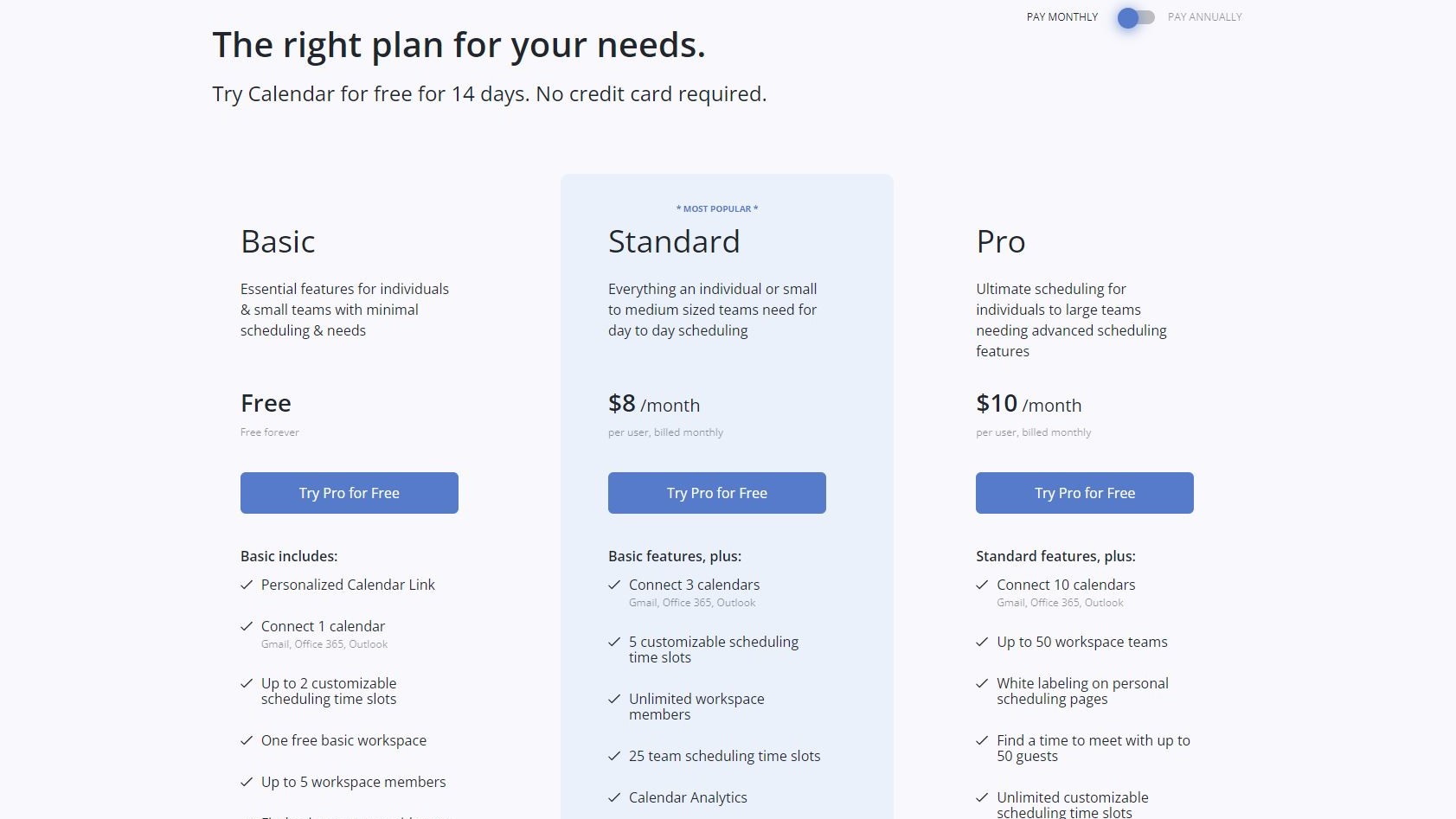
Plans and pricing
There are three plans available – Free, Standard ($6/month), and Pro ($8/month). The free plan comes with pretty much everything one might need for regular daily use, and doesn’t lock any critical features behind a paywall, unlike some competing apps. Users on this tier can connect to one calendar on an external platform, and will have one basic workspace to use. It’s worth noting that up to five members can be added to a single workspace, even on a free tier, which makes the app better for collaboration for those who don’t want to pay for a premium solution.
The two premium tiers add a variety of extra features aimed primarily at users in organizations. This includes the ability to sync more calendars under a single account, unlimited workspace members, meetings with 25 and even 50 guests, and analytics that can help you gain a deeper understanding of your scheduling habits.
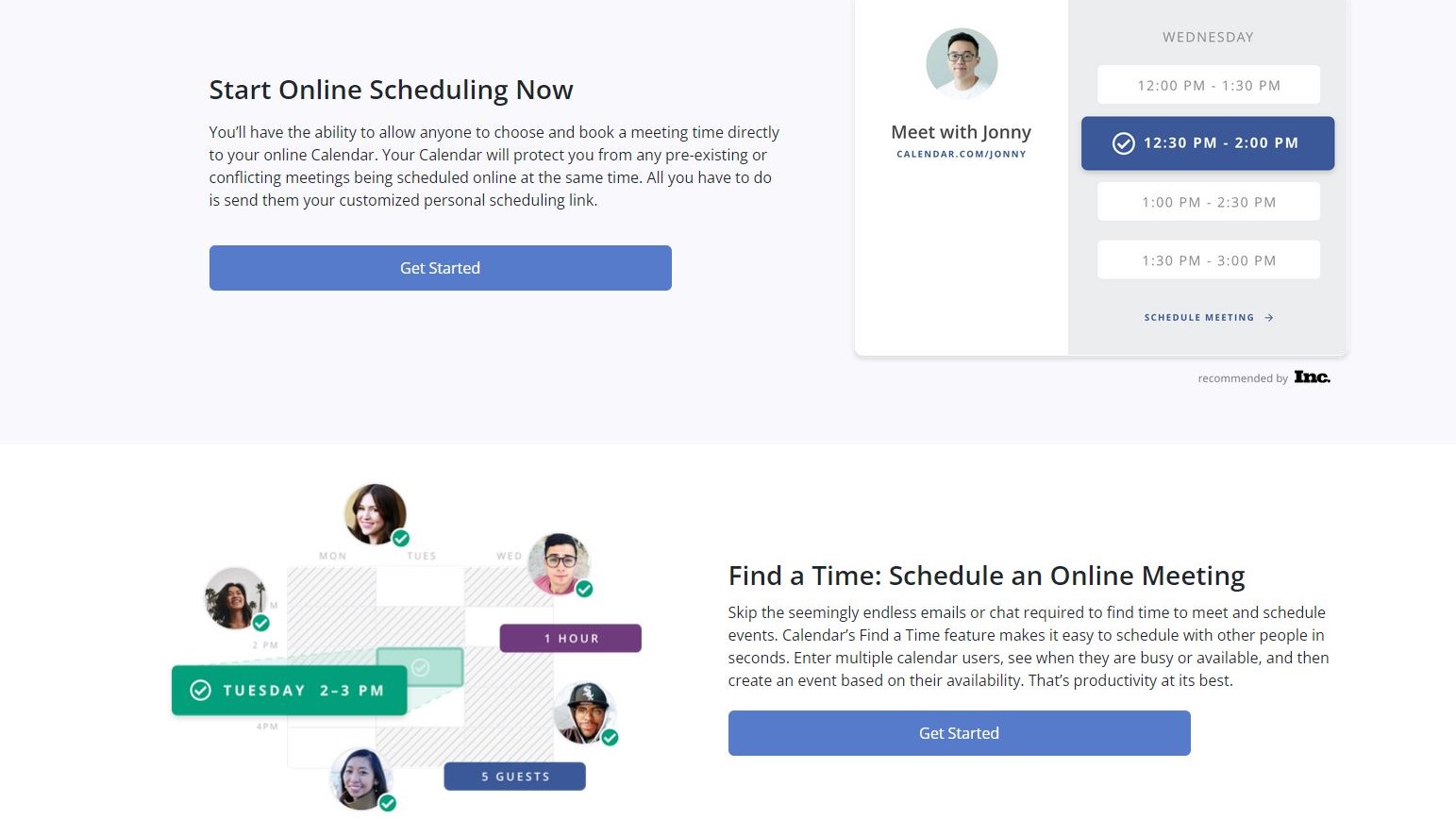
Features
Calendar.com comes with all standard features you would expect to find in a modern calendar app. You can view your schedule in different modes – day/week/month/year, and can easily share your calendar with other users, including those on Google services. Free users can set up meetings with up to 5 attendants, and the app offers advanced scheduling options to help you find the best available timeslot.
Some of the features offered by Calendar.com can’t be found in other similar apps, or at least not often – such as the ability to embed calendars in web pages, and the native Zapier integration. Zoom integration is available as well, though only on the premium tiers. For most individual users, this shouldn’t matter much, but for those planning to use Calendar.com in an organization, subscribing to one of the premium tiers will be a good idea.
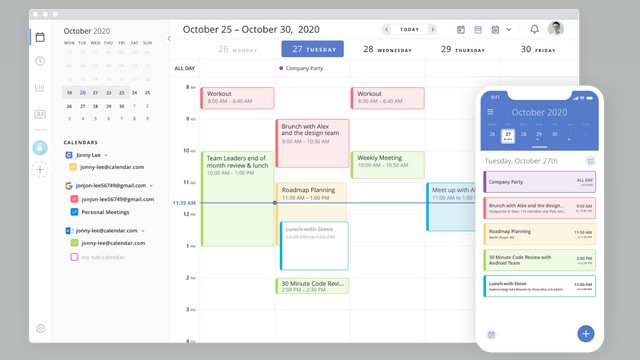
Interface and in use
The interface of Calendar.com doesn’t shine with anything unusual, but it gets the job done more or less fine. The app leans towards a more minimalistic design, hiding elements that are not used frequently and focusing on the major parts of the interface. That said, you should find it very easy to dig up any feature you might need, and it doesn’t take long to get used to the way the interface is organized.
The app does tend to flow a bit better with a premium subscription, mainly because it unlocks its full range of features. The free tier still has its benefits though – especially for those looking for simplicity and a clean design. Some users might find the additional features in the premium tiers confusing, since many of them are aimed at organizations and similar use cases. Give the free version a try before deciding to upgrade to a premium plan, as it might work just fine for your specific needs.
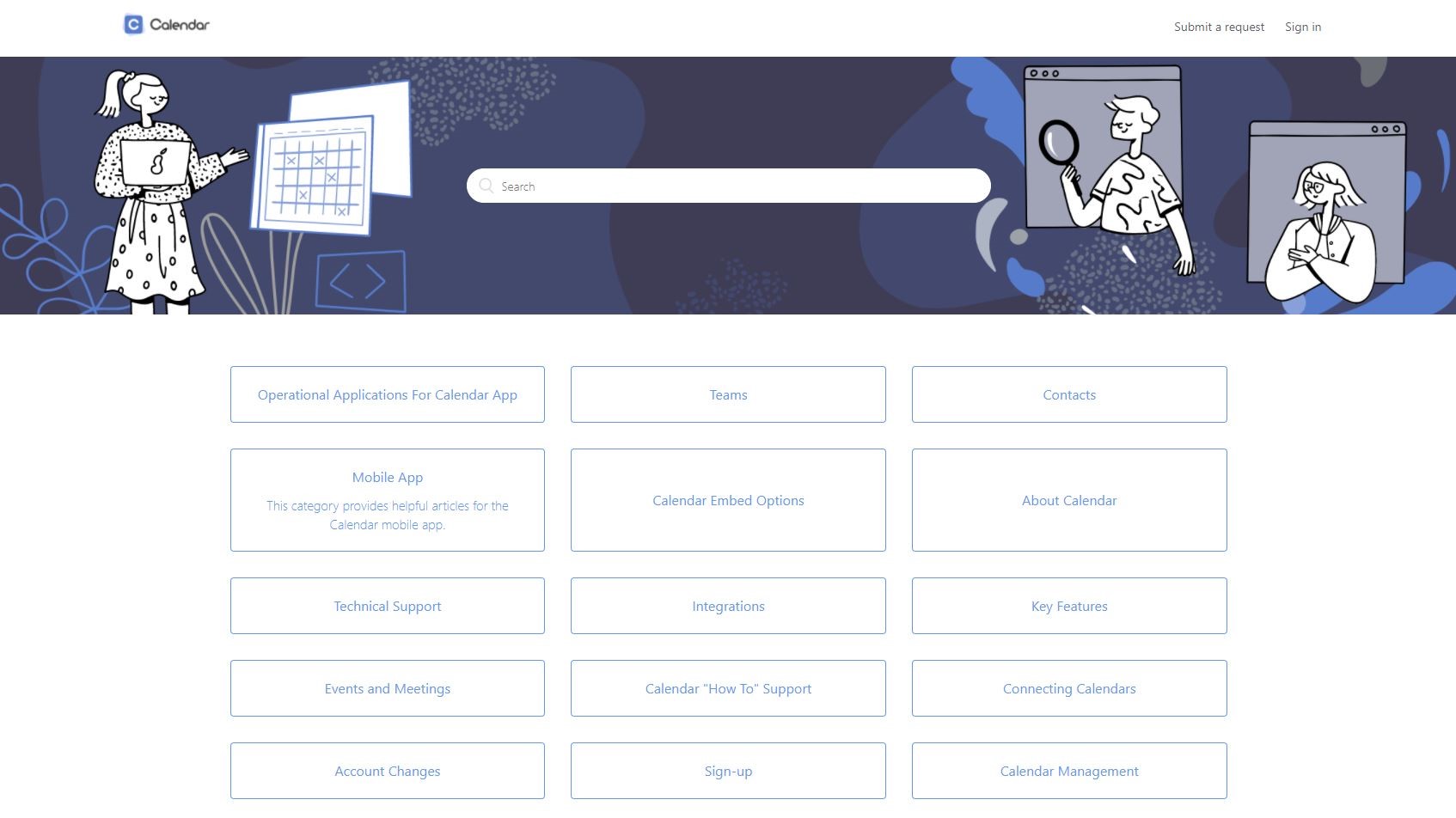
Support
The company provides standard email support on top of their help knowledge base, and they additionally offer some special options to premium subscribers. If you’re on the Standard or Pro tier, you can get in touch with support representatives over the phone, and your inquiries will be prioritized. Free users will still get support, but in a more limited capacity. Most of the problems you may encounter during your use of the app should already be covered in the knowledgebase in any case.
The competition
Calendar.com manages to stand out with its set of features and pricing plans. The app faces direct competition from Google Calendar, Apple Calendar, and other popular solutions like Fantastical. It still has a dedicated user base, and some have been with it for many years at this point. Choosing between Calendar.com and some of its popular competitors is mostly about personal choice with regards to things like interface organization and pricing, and the app is definitely worth checking out if you’re currently comparing the different options on the market.
Final verdict
The app does a great job on all fronts, and can be equally useful to individuals as well as large organizations. It takes some time to get used to how it works, but after that, everything is quite easy. The strong support it receives from its developers is nothing but a huge plus as well, so if you’re looking for a good calendar app that covers all important bases at a reasonable price, look no further.
We've also featured the best calendar apps and best time management apps
Stefan has always been a lover of tech. He graduated with an MSc in geological engineering but soon discovered he had a knack for writing instead. So he decided to combine his newfound and life-long passions to become a technology writer. As a freelance content writer, Stefan can break down complex technological topics, making them easily digestible for the lay audience.
